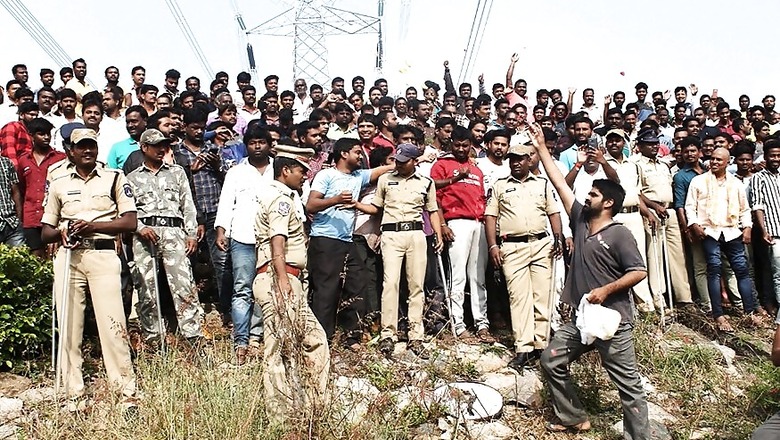
views
Can sentimentalism and sanctimoniousness solve any problem? A large section of politicians and public figures would answer in the affirmative. The more desperate a situation, the higher decibels of loose talk we suffer. Consider Jaya Bachchan’s statement in the wake of the rape and murder of a veterinary doctor in Hyderabad: “I know it sounds harsh, but these kind of people should be brought out in public and lynched.”
The fact that it was not an angry outburst on, say, Twitter but a statement made in Parliament underlines the depth to which political debate has plunged. Lawmakers are supposed to uphold the Constitution, and here is an honourable Member of Parliament making a deplorable remark on the floor of the House.
Similar views were expressed by other parliamentarians. DMK’s P Wilson wanted courts to be empowered to “surgically and chemically castrate convicted rapists”. Further, “the cost of such procedure should be recovered from the accused by selling his assets”. Kanakamedala Ravindra Kumar of TDP demanded that capital punishment to the rapists should be in public.
Union minister Harsimrat Kaur said, “I urge the government that in rape cases, judgment should be pronounced in number of months equivalent to the age of the victim. So if the victim is 20 years old, the trial should be concluded in 20 months.” In a similar vein, Delhi Commission for Women chief Swati Maliwal wanted the accused in the Unnao rape case to be “hanged within a month”.
While inflamed emotions and anger are understandable, it is time for our political masters to do more than express their feelings — and that, unfortunately, is not happening. The ministry of women & child development informed Parliament recently that less than 9 per cent of the Nirbhaya Fund sanctioned to states and Union Territories, or Rs 147 crore of Rs 1,672 crore, was used. Five states and a Union Territory — Maharashtra, Manipur, Meghalaya, Sikkim, Tripura, and Daman & Diu — didn’t even touch the fund granted to them by the Union Home Ministry.
The Nirbhaya Fund, constituted after the brutal rape and murder of the 23-year-old paramedic student in Delhi in 2012, was aimed at improving women’s safety.
Telangana, whose government was widely slammed after the veterinarian’s murder, could utilise just 4 per cent or Rs 4.19 crore of its share of Rs 103 crore.
This is not to suggest that full utilisation of the Nirbhaya Fund would ensure full security for women. The truth is that the law and order situation is not gender specific; you can’t have a society safe for women but unsafe for men; it is the overall improvement in the situation that is needed; and it can’t happen by making sensational remarks and dramatic demands. But, sadly, this is all we get.
One such demand, made by many, is that rape should be punishable with death. The Justice JS Verma committee, which was set up after the Nirbhaya case, deliberated over the issue but didn’t recommend death penalty for rape. If this demand is accepted, it would be a recipe for more grief, for it would actually incentivise the rapist to kill the victim.
From the rapist’s perspective, a dead victim is better than a living one; it means a witness fewer. It is obvious that a person who is brutal and strong enough to sexually violate a woman is also brutal and strong enough to snuff life out of her.
Those who matter are simply not serious to improve law and order. When they are not politicising such incidents, they are shifting the blame on others. The judiciary is often blamed for delays and the consequent exasperation of the people. This has resulted in the lionising of the cops who killed the four accused in the Hyderabad case in an encounter, despite the fact that the police version of the accused trying to escape has been questioned by many.
Against this backdrop, Chief Justice SA Bobde did well obliquely cautioning the nation: “But I don’t think justice can ever be and ought to be instant. And justice must never ever take the form of revenge. I believe justice loses its character of justice if it becomes revenge.”
The only way out is the implementation of police and judicial reforms; only this can improve law and order; the rest of the solutions are akin to snake oil. It is conspicuous that few politicians and policy makers are debating such reforms.
Proud Indians bristle as the Western stereotype describing their country as the land of snake charmers. The stereotype is obviously wrong: this is the land of snake oil salesmen.
(The author is a freelance journalist. Views expressed are personal.)


















Comments
0 comment